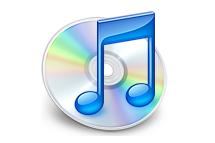After 10 billion songs, what's iTunes' encore?
- 27 February, 2010 10:10

Apple's iTunes Store reached a major milestone this week when it delivered its 10 billionth song, an event that highlights the great success of Cupertino's digital-download service.
Techworld: How to get free iTunes music
But as successful as the iTunes Store has been in its nearly seven years of existence, a new series of challenges will require it to evolve to stay competitive. These include a growing number of online movie-streaming competitors, a possible migration by consumers to Web-based music services, and a new crop of hardware devices (e.g., the iPad and similar tablets) that expand the market for digital content. Combine these factors with broadband speeds that should rise significantly in the coming years, and there's a good chance that iTunes circa 2020 may be very different from today's service.
What changes are in store for iTunes? A few near-term possibilities:
Web-based iTunes: When Apple bought online music service Lala last year, industry watchers assumed Cupertino would integrate Lala with a Web-based version of iTunes. It remains to be seen what plans Apple has in store for its new purchase, but a cloud-based service that stores customers' music on Web servers rather than on a limited number of hardware devices makes sense, particularly for users with multiple, Web-connected portable devices.
Subscription services: The era of the 99-cent (or thereabouts) song download may not be over, but are its days numbered? Music-streaming services such as Pandora and Rhapsody are popular among iPhone and iPod touch users, and certainly a streaming option would be welcome by iTunes fans. There's also talk of an iTunes TV subscription service for about $30 per month.
Cheaper TV shows and movies: According recent rumors, Apple may cut the cost of iTunes TV show downloads to $1, a move that could coincide with the iPad's release in April. Apple currently charges $1.99 for standard-definition TV shows, and $2.99 for high-def. As with the alleged iTunes TV subscription service, it's unclear whether Hollywood studios would agree to these aggressively priced proposals.
AppleTV: This nifty little media player for the living room hasn't gotten much (if any) marketing love from the folks in Cupertino. Perhaps Apple isn't quite sure how to market the box, which hooks tightly into the iTunes Store and downloads movies, TV shows, music, and more. Now may be a good time to trumpet AppleTV's virtues, however. A number of well-funded competitors, including Netflix, Amazon, and Wal-Mart, the latter of which just announced plans to buy video-streaming service VUDU, are making a play for the online movie business.
Contact Jeff Bertolucci via Twitter (@jbertolucci) or at jbertolucci.blogspot.com.





